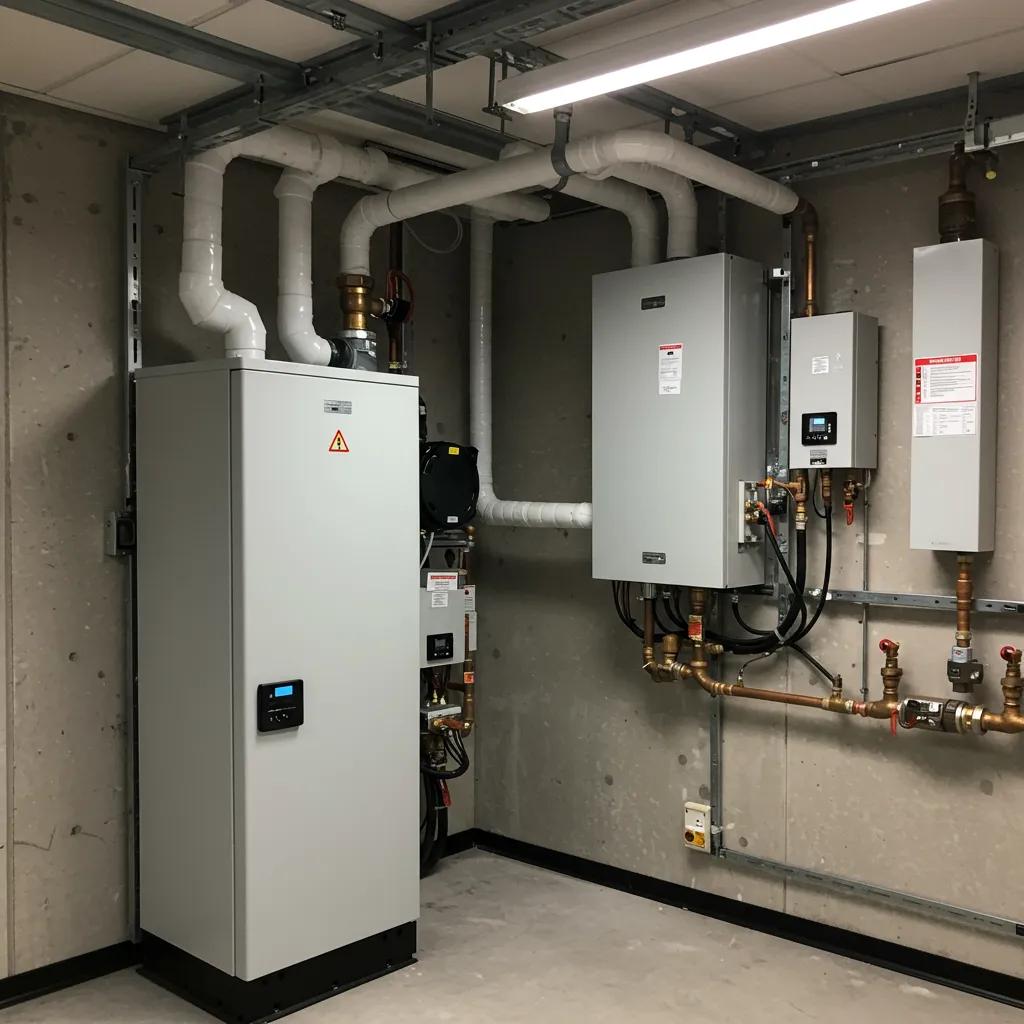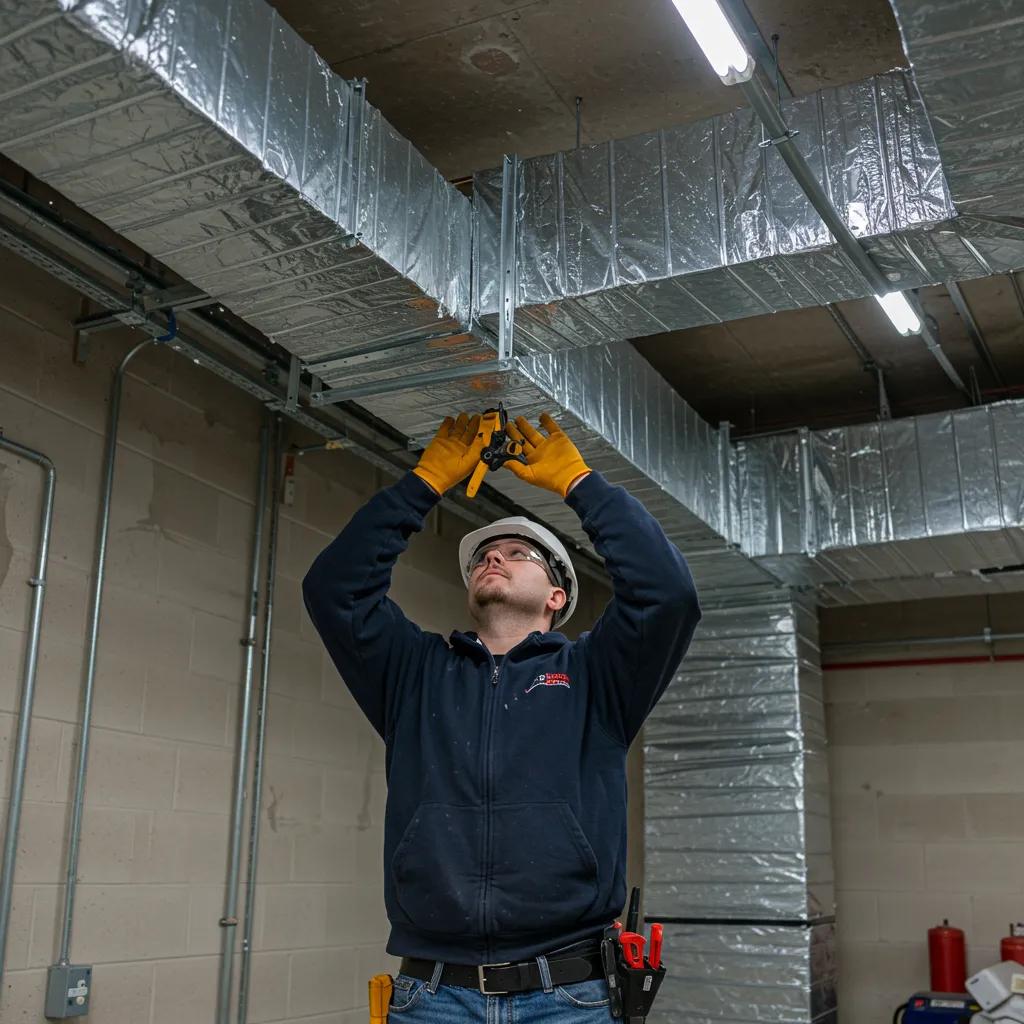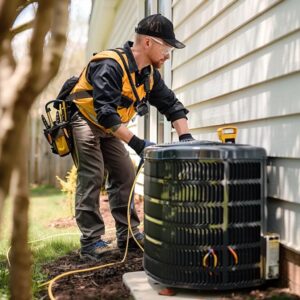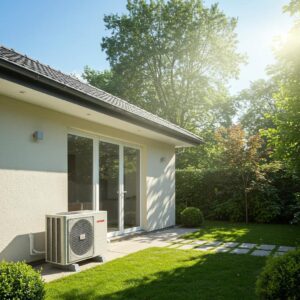Maximize Your Commercial Heating System's Efficiency Today: Essential Maintenance Tips
Commercial heating systems can consume nearly half of a building’s energy. Neglecting maintenance can lead to efficiency drops of 5–10 percent annually. For business owners in Brookhaven, GA, this means higher utility bills and unpredictable comfort. This guide provides critical heating system maintenance tips to ensure peak performance, slash operating costs, and extend equipment life. We’ll cover the advantages of regular upkeep, essential tasks for maintaining efficiency, energy-saving upgrades, the value of a commercial energy audit, the impact of timely repairs or new installations, and strategies for optimizing ductwork. You’ll also discover why Air Heat America’s free installation quotes, certified technicians, and transparent pricing make boosting your heating efficiency straightforward and budget-friendly.
What Are the Key Benefits of Regular Heating System Maintenance?
Consistent preventative maintenance for commercial heating systems guarantees optimal performance and unwavering reliability. By meticulously inspecting components, replacing worn parts, and fine-tuning controls, businesses can sustain peak energy efficiency, prevent costly breakdowns, and ensure superior indoor comfort.
- Boosted Energy Efficiency – Regular tune-ups prevent efficiency degradation caused by clogged filters, dirty coils, or miscalibrated controls.
- Significant Cost Savings – Properly maintained systems use 5–15 percent less energy, directly reducing utility expenses.
- Extended Equipment Lifespan – Proactive servicing minimizes wear and tear, delaying expensive equipment replacements by several years.
- Improved Indoor Air Quality – Clean coils and fresh filters significantly reduce dust and allergens, promoting a healthier environment for occupants.
Consistent maintenance builds upon these advantages to establish a robust heating strategy that supports business productivity, occupant comfort, and financial health.
Benefits of Regular HVAC Maintenance
Regular maintenance of commercial HVAC systems can lead to substantial energy savings, with potential reductions in energy bills ranging from 5% to 15%. This is achieved through improved efficiency and the prevention of performance degradation caused by issues like clogged filters or malfunctioning components.
U.S. Department of Energy, “Commercial Building Energy Consumption Survey” (2012)
This research supports the article’s claims about the financial benefits of routine HVAC maintenance.
How Does Preventative Maintenance Improve Heating Efficiency?
Preventative maintenance enhances heating efficiency by eliminating airflow restrictions, precisely calibrating controls, and optimizing heat transfer. Cleaning coils and replacing filters remove energy-sapping blockages, while meticulous sensor inspections ensure accurate temperature control, guaranteeing the system delivers heat precisely when and where it’s needed.
What Cost Savings Can Businesses Expect from Routine HVAC Maintenance?
Routine HVAC maintenance can yield:
- 5–10 percent annual energy bill reduction through clean filters and coils.
- 10–15 percent savings by detecting and correcting thermostat or control faults.
- Up to 40 percent avoided repair costs by catching minor issues before they escalate.
Consistent upkeep translates into tangible financial returns that cover service investments within months.
How Does Maintenance Extend the Lifespan of Commercial Heating Systems?
Maintenance extends system lifespan by identifying early signs of component fatigue—such as corroded heat exchangers, worn belts, or leaking valves—and resolving them before catastrophic failure. By balancing load distribution and minimizing cycle wear, a well-tuned furnace or boiler can operate reliably for 15–20 years, deferring major capital expenses.
Extending Equipment Lifespan Through Maintenance
Preventative maintenance plays a crucial role in extending the lifespan of commercial heating systems. By identifying and addressing minor issues before they escalate, businesses can avoid costly repairs and replacements, ensuring their systems operate reliably for a longer duration.
ASHRAE, “HVAC Systems and Equipment Handbook” (2020)
This citation reinforces the article’s emphasis on the importance of maintenance for the longevity of HVAC systems.
Which Essential Maintenance Tasks Maximize Heating System Performance?
Essential HVAC maintenance tasks are fundamental to optimizing efficiency. These procedures ensure each subsystem operates at its peak capacity and prevent common points of failure.
| Maintenance Task | Purpose | Recommended Frequency |
|---|---|---|
| Filter Replacement | Maintains proper airflow | Quarterly or per load profile |
| Coil Cleaning | Optimizes heat transfer | Annual |
| Sensor Calibration & Inspection | Ensures accurate temperature control | Annual |
| Belt & Motor Inspection | Verifies mechanical integrity | Annual |
How Often Should Commercial HVAC Filters Be Changed?
Commercial HVAC filters should be replaced every 3 months or more frequently in dusty environments. Fresh filters maintain design airflow, reduce blower energy use, and safeguard heat exchanger efficiency.
Why Is Coil Cleaning Critical for Heating Efficiency?
Coil cleaning removes dust and debris that insulate coil surfaces, reducing heat transfer efficiency. Clean coils restore optimal thermal exchange, lowering burner run times and cutting fuel or electricity consumption.
What Role Do Sensor Calibrations and Inspections Play in System Optimization?
Accurate sensors and controls eliminate temperature swings and short cycling. Calibrated thermostats and pressure sensors maintain design setpoints, ensuring the system operates only when needed and avoids wasted energy.
How Can Energy-Efficient Upgrades Enhance Your Commercial Heating System?

Integrating modern, high-efficiency equipment upgrades can amplify savings and reduce carbon footprints. Beyond regular maintenance, these investments accelerate ROI through lower utility costs and enhanced reliability.
| Upgrade Type | Efficiency Rating Improvement | Why It Matters |
|---|---|---|
| High-Efficiency Furnaces/Boilers | +10–15 percent AFUE | Captures more heat per fuel unit |
| Variable Refrigerant Flow (VRF) | +20 percent | Modulates capacity to match load precisely |
| Air-Source Heat Pumps | +25–35 percent HSPF | Transfers ambient heat with minimal electricity |
| Smart Thermostat & BAS Controls | +10–20 percent energy savings | Enables occupancy-based scheduling |
What Are the Benefits of High-Efficiency Furnaces and Boilers?
- Higher AFUE Ratings – Converting more fuel into usable heat.
- Lower Emissions – Cleaner combustion reduces environmental impact.
- Reduced Operating Costs – Up to 15 percent lower fuel bills annually.
- Enhanced System Reliability – Modern components with longer warranties.
How Do Heat Pumps and VRF Systems Improve Energy Savings?
Heat pumps and VRF systems adapt output to instantaneous demand rather than cycling at full capacity. This variable-capacity operation reduces electrical draw and maintains precise temperature control, achieving up to 30–40 percent energy savings in suitable climates.
What Smart Thermostats and Controls Optimize Heating System Performance?
- Learning occupancy patterns to adjust setpoints automatically.
- Integrating remote sensors for zone-based control.
- Reducing runtime during unoccupied periods through scheduling and geofencing.
These controls translate real-time data into actionable energy savings.
What Is a Commercial Energy Audit and How Does It Unlock Heating System Savings?
A commercial energy audit is a systematic assessment of a building’s energy flows, pinpointing waste and prioritizing efficiency improvements. By combining diagnostics, data analysis, and actionable recommendations, audits reveal hidden savings opportunities that maintenance alone cannot uncover.
Key audit benefits include:
- Identifying inefficient equipment or insulation gaps
- Quantifying potential savings in monetary and energy terms
- Providing a prioritized roadmap for upgrades and repairs
What Does the Commercial Energy Audit Process Involve?
- Pre-Audit Interview – Review operating schedules and utility data.
- On-Site Inspection – Deploy infrared imaging, airflow measurements, and component testing.
- Data Analysis – Compare performance metrics to industry benchmarks.
- Recommendation Report – Present ROI estimates and implementation plan.
Completing these phases ensures a thorough understanding of system performance.
How Do Energy Audits Identify Inefficiencies and Waste?
Audits identify inefficiencies by detecting thermal leaks, pinpointing cycling losses, and measuring ductwork pressure imbalances. Data-driven insights isolate root causes of high consumption, from outdated boiler insulation to misaligned controls.
What ROI Can Businesses Expect from Energy Audit Recommendations?
Commercial energy audits often yield 10–30 percent utility cost reductions. Recommended measures typically pay back within 1–3 years, driving sustained savings and improved equipment reliability.
How Do Timely Repairs and New Installations Impact Heating System Efficiency?
Prompt repairs and professional installations ensure equipment operates at design capacity from day one. Addressing leaks, worn bearings, or misaligned ductwork prevents efficiency losses of 5–10 percent, while correctly sized new systems avoid the energy waste of over- or undersized units.
What Are Common Signs of an Inefficient Commercial Heating System?
- Uneven temperatures across zones
- Short cycling or frequent on/off runs
- Rising energy bills despite consistent usage patterns
- Loud blower noise or visible soot on heat exchangers
How Do Expert Repairs Restore and Maintain System Efficiency?
Expert repairs replace faulty components, recalibrate controls, and seal airflow leaks. These targeted actions stop energy waste, lower maintenance costs over time, and reinforce the effectiveness of annual tune-ups.
Why Is Proper Sizing and Installation Critical for New HVAC Systems?
Proper sizing matches equipment capacity to building load requirements, eliminating energy waste from oversizing or inefficiencies from undersizing. A precision installation by licensed technicians guarantees correct refrigerant charge, duct connections, and system balance.
How Does Optimizing Commercial Ductwork Improve Heating System Efficiency?

Efficient ductwork is the circulatory system of any HVAC installation. Leaks, poor sealing, or lack of insulation can waste 20–30 percent of heated air before it reaches occupied spaces, driving up operating costs and reducing comfort.
What Are the Benefits of Duct Sealing and Insulation?
- Eliminate Air Leaks – Maintains design airflow volumes.
- Prevent Thermal Loss – Insulation preserves conditioned air temperature.
- Reduce System Strain – Lower fan energy consumption and noise levels.
How Does Airflow Balancing Affect Heating Performance?
Airflow balancing adjusts dampers and registers to ensure each zone receives the correct volume of warm air. Proper balancing prevents over-delivery to close zones and under-delivery to remote areas, preserving energy and comfort uniformly.
Why Choose Local Experts Like Air Heat America for Heating System Maintenance in Brookhaven, GA?
Brookhaven businesses benefit from Air Heat America’s 30+ years of commercial HVAC expertise, NATE-certified technicians, and commitment to transparent service. With free estimates on new installations and no-surprise pricing, Air Heat America transforms efficiency plans into reliable, cost-effective solutions.
What Unique Value Does Air Heat America Offer for Commercial HVAC Efficiency?
- NATE-Certified Technicians – Ensuring industry-leading expertise
- Proven Preventative Maintenance Programs – Customized to building needs
- Advanced Diagnostic Tools – Infrared imaging and airflow analysis
- Energy Audit Services – In-depth savings analyses and ROI forecasting
How Do Free Estimates and Transparent Pricing Support Efficient Heating Solutions?
By offering free, no-obligation quotes, Air Heat America enables businesses to compare options without upfront commitments. Clear, itemized pricing avoids hidden fees and aligns investments directly with measurable energy savings.
What Success Stories Demonstrate Proven Efficiency Improvements Locally?
Local retail centers and office complexes have achieved 10–20 percent utility reductions after partnering with Air Heat America. Case studies reveal payback periods under two years and measurable comfort gains, illustrating the firm’s impact on Brookhaven’s commercial landscape.
Proactive maintenance and strategic upgrades are the cornerstones of a cost-effective heating strategy. By combining regular tune-ups, energy-efficient equipment, targeted repairs, and expert ductwork optimization, Brookhaven businesses can dramatically reduce energy consumption and extend system life. Air Heat America’s free installation quotes, certified technicians, and upfront pricing ensure that every efficiency measure translates into real savings.
Take the first step toward maximum heating performance today by requesting a complimentary assessment and exploring customized maintenance plans.



